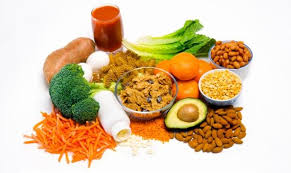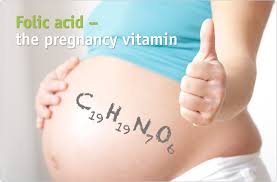What is folic acid? Folic acid is a type of B vitamin that is normally found in foods such as dried beans, peas, lentils, oranges, whole-wheat products, liver, asparagus, beets, broccoli, brussels sprouts, and spinach.
What does folic acid do for us?
1-Supports Normal Fetal Development. Folate plays an integral role in fetal development and the benefits for pregnant women and their offspring cannot be understated. Folate deficiency during early pregnancy can lead to neural tube defects. This is a serious problem that can lead to pregnancy termination or a baby born with spina bifida. The good news? Studies have found increased folate levels from one month prior to conception to 3 months afterward can reduce the chance of these defects by 50%.
2-Folic acid plays a role with our nervous system. This B vitamin is required for proper brain function and aids in maintaining healthy emotional and mental health.
3-Cell growth is also significantly impacted by folic acid. This vitamin assists in the production and maintenance of DNA, RNA, and blood cells. This is especially notable during adolescence and pregnancy, when cell health and growth is particularly important.
4-It reduces the effects of our aging process. Folic acid is not only useful for early development and pregnancy, but it may also prevent age related conditions later in life. One study found that elderly individuals who had high levels of homocysteine and reduced folate levels benefited from folic acid supplementation. Patients showed a reduction in the rate of hearing loss as they aged. Another study showed that patients who took 2,500 mcg of folic acid in addition to 500 mg of vitamin B6 and 1,000 mcg of vitamin B12 daily showed a reduced risk of developing AMD (a condition leading to loss of vision). Having proper levels of folic acid can assist health at any stage of life.
5-Reducing the risk of heart disease, so vital in America. Heart disease is a major concern in the United States and folic acid may help lower the rate of occurrence. Through regulating possibly harmful substances, such as the amino acid homocysteine, folates may reduce the risk of heart disease. Studies have shown that patients with high levels of homocysteine have an increased risk of heart disease by 1.7 times and an increased risk of stroke by 2.5 times. Although more research is required to make a definitive link between this amino acid and heart disease, regulating it via folate supplementation takes little effort.
Folic Acid Deficiency
Even if one is not interested in preventative benefits of this vitamin, it is important to maintain proper levels. This can be challenging for some as there are several factors that reduce folic acid levels in the body. Alcoholism, inflammatory bowel disease (IBD), celiac disease, and some medications such as tetracycline (an antibiotic), methotrexate (used for treating cancer, rheumatoid arthritis, and psoriasis), and chemotherapy all significantly hamper folic acid levels by inhibiting absorption.
Deficiency of this B vitamin can lead to:
- Inhibited growth
- Loss of appetite leading to weight loss
- Diarrhea
- Forgetfulness
- Fatigue and weakness
- Irritability
- Sores and inflammation in or around the mouth
Cautions and Concerns of Supplementation
Folic acid, and B vitamins in general, are not associated with any severe side effects. Because they are water soluble any excess left over is simply excreted through urine. However, extreme dosages may cause:
- Stomach problems
- Sleep problems
- Skin reactions
- Confusion
- Loss of appetite
- Nausea
- Seizures
Consult a physician if you intend to take more than 800mcg of folic acid. Those undergoing treatment for seizures or cancers should speak to their physician before taking folate supplements.
Protect your Future with Folic Acid
One of the best ways to ensure that you have adequate levels of folic acid in your diet is taking a folate supplement. Although, one usually acquires enough vitamin B9 through a balanced diet, dietary restrictions, food allergies, and food availability may impact one’s ability to ingest the requisite amount of folic acid. Mega B, produced by HoltraCeuticals, provides the needed daily amount of folic acid as well as a supporting cast of B vitamins to ensure the greatest impact. As an easy-to-digest form of B vitamins, Mega B is particularly beneficial for the elderly, vegetarians, and those who have chronic conditions as they are at greater risk of deficiency.
Even if you’re not at risk of deficiency, increasing B vitamin, or more specifically folate intake, can help prevent a slew of debilitating conditions and keep your body running at its best. Because there is relatively little danger associated with vitamin B supplementation, there are very few reasons not to utilize one. By taking a folate supplement and further spreading awareness during Folic Acid Awareness Week and throughout the year, you can fight against B vitamin deficiency and help reduce the occurrence of life-altering conditions.

